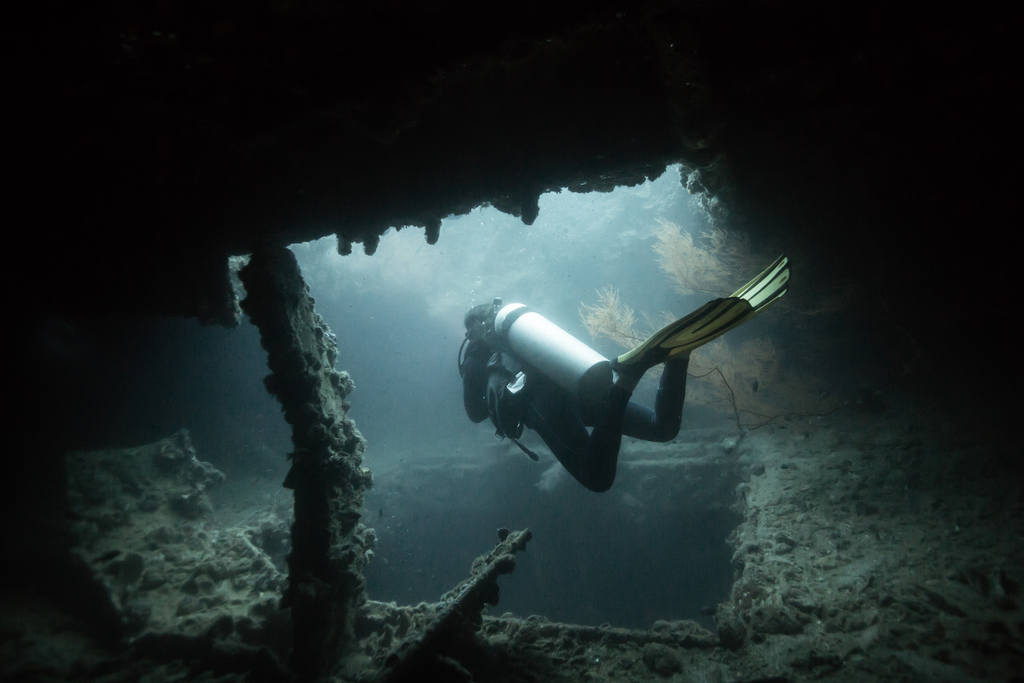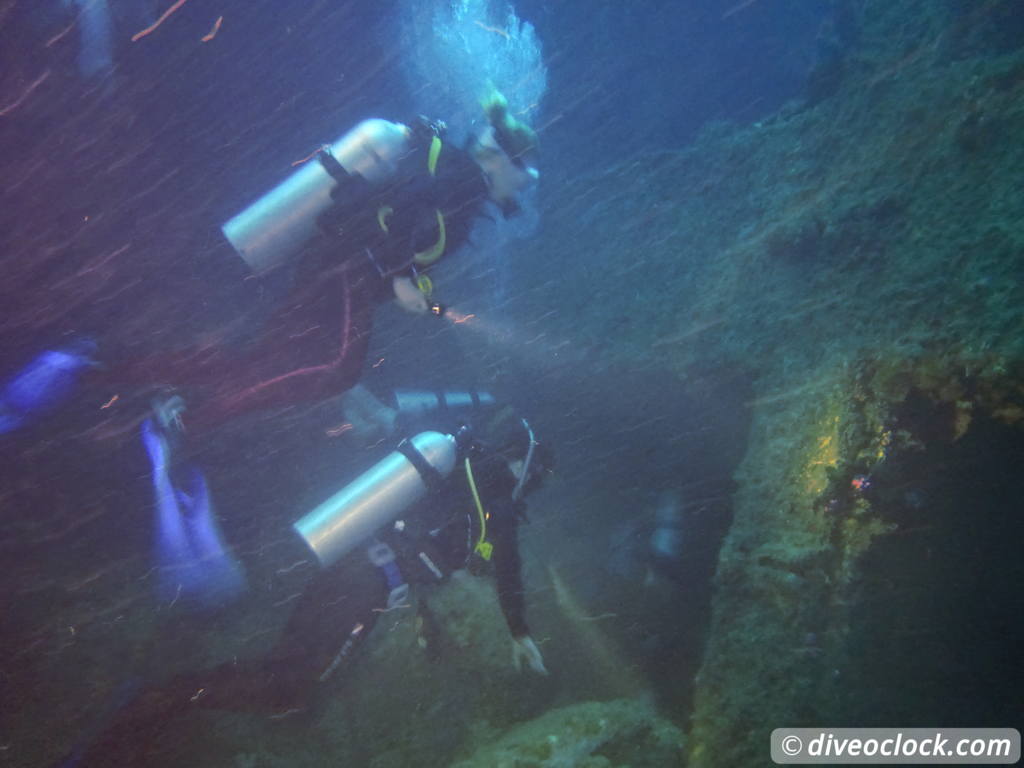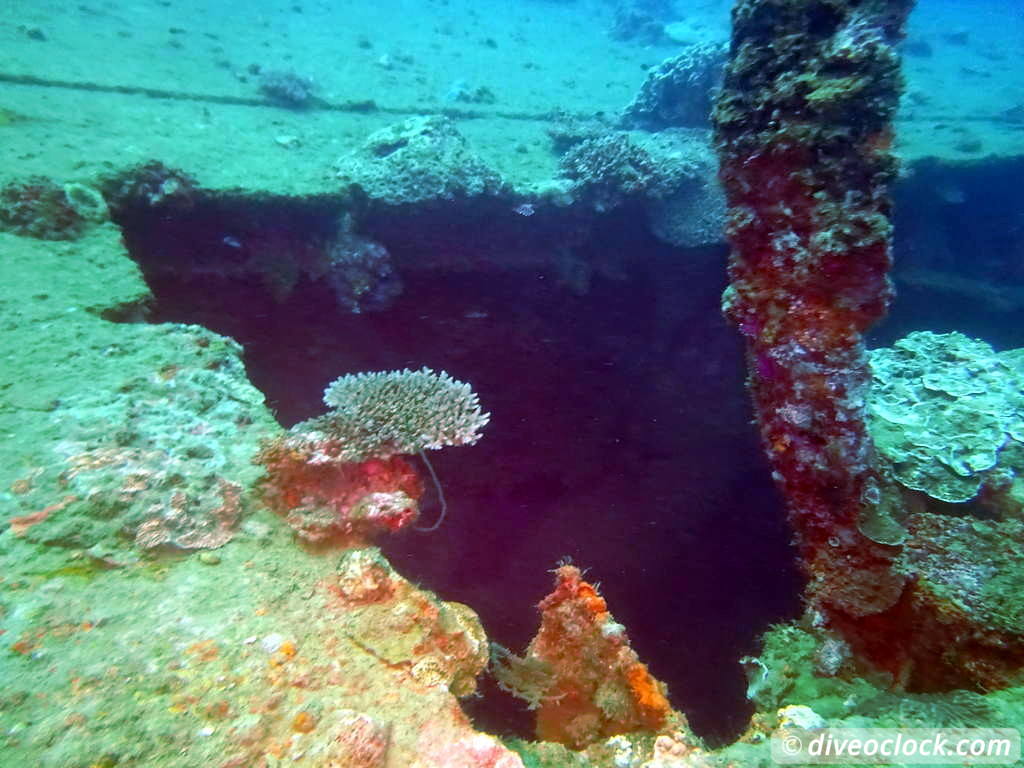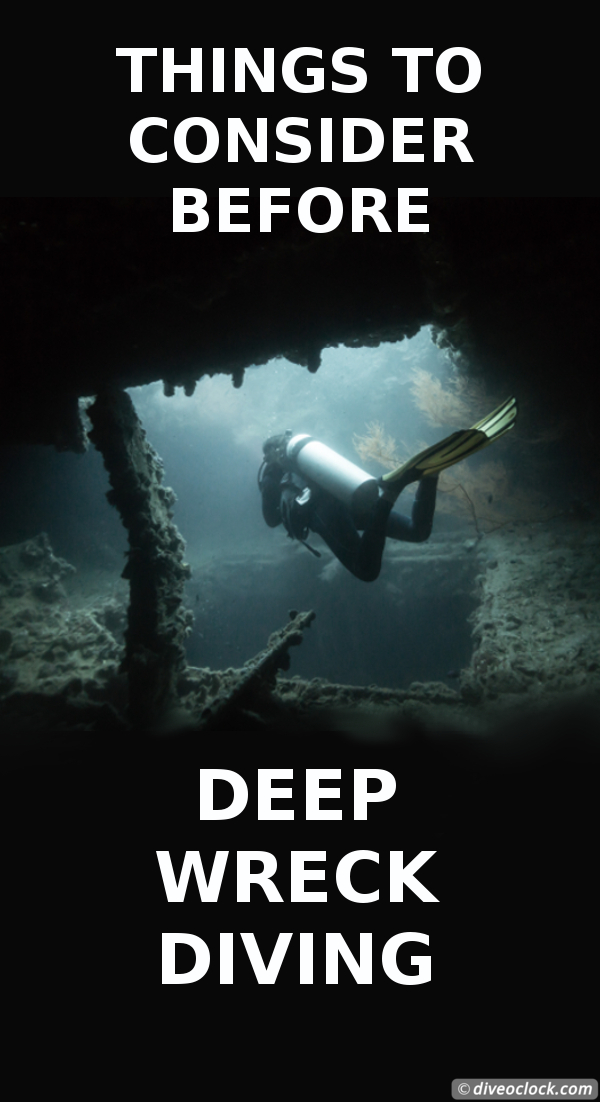Important Things to Consider Before Deep Wreck Diving
Is it safe to dive deep and inside wrecks? The answer is not simple. Things that can go wrong, the limits of different levels of recreational diving and things to know about extra equipment and procedures.

Often wrecks lie in deep water, below 18 meters of depth, and it is possible to go inside (penetrate) parts to explore the interior of the ship or a plane. The same thing goes for caves and overhangs, you can go inside and explore the darker area. Sometimes there is a whole tunnel complex hidden at deep waters or a tunnel which connects a (blue) hole to the open sea. Drowning is the main reason why people die while diving. Being stuck in a closed area without direct surface access / overhead environments is why quite a lot of divers have never returned home.
Since you have no direct access to the surface you can not start a vertical emergency ascent when you are (nearly) out of air. Entering a wreck often causes disorientation and you can loose your sense of direction, especially if you stir-up sand/silt from the bottom. Some areas/ wreck chambers are really narrow and with a one-way entry only without turning point. Other than that, parts of a wreck can collapse due to various reasons and things can fall on you. This is why you should never enter a wreck without an experienced guide in the first place, but there some things to consider with guided dives as well.

The limits of different levels of recreational diving
There are agency-specific limits of the different levels of recreational diving. Off course, selling you another dive course is part of the diving business, but every course learns you additional safety procedures and gives you extra problem solving training. Be aware though that even with this extra knowledge and professional-guided training and experience, your mental status also influences the choices you make underwater!To give you an idea, this is what some of the PADI limits look like (in short):
- OPEN WATER divers are limited to 18 meters of depth.
- ADVANCED divers are limited to 30 meters and not allowed to penetrate a wreck (NOT even with the wreck dive as part of this course).
- WRECK divers (Specialty) learn to penetrate wrecks with lines/reels, extra safety equipment and procedures like 'the rule of thirds'.
- DEEP divers (Specialty) learn to dive up to 40 meters and learn all about the involved extra risks, problem solving techniques and procedures.
- Tec 40 is the entry level certification of Technical diving, including decompression diving (decompression stops instead of safety stops), equipment and procedures. Still you are not allowed to dive deeper than 40 meters!
- Tec 50 takes you up to 50 meters under direct supervision of a certified instructor and introduces to trimix (Helium/Oxygen/Nitrogen blend).
> It will be hard (if not impossible) to find a Technical diver that dives below 50 meters on a single tank!
Equipment and procedures for deep and wreck diving
If you have your own equipment it is well worth bringing it on these kind of dives (holidays). Rental equipment can be better than your own but often it is NOT since it is used a lot more and often budget to mid-range quality. For easy reef diving this is often sufficient but this is different. You probably know how to plan a dive with your buddy around your home town and/or have heard many dive and boat briefings when fun diving during your holiday. Deep diving and wreck penetration, and especially the combination, requires more equipment and different procedures.It is probably not your job to provide the necessary equipment and procedures for a planned deep wreck (penetration) dive, but there are a few things you can/or should check with the dive center.
- Check the dive equipment and servicing status, does the dive center seem to care? Do the BCD's look like they almost fall apart? Are the mouth pieces almost chewed up? This is why I always go to the dive center and sort out equipment the day before. You do not want to end up on the boat without the chance of changing it! Are tanks being tested as they should? It can be hard to know or check if the tanks have been properly maintained yourself, but every dive professional can show you and you can check the stickers on the tanks.
- Ask for the certification level and experience of the dive guides. It is NOT mandatory that your guide is Dive Master or Dive Instructor certified but consider these challenging circumstances and the above list. It might be worth having a guide with proof of (up to date) education in problem solving and special procedures other than experience.
- Is the guide diving with single or double tanks and is he/she bringing an extra tank and a back-up torch to hand-out in case your torch fails working?
- How are the dives organized? Will there be a spare tank at 5 meters in case somebody gets really low on air? Are there extra safety stops planned?
- What is the maximum group size and number of guides ratio? Will there be one guide following at the back? Are groups divided by experience level?
- Will there be a limited dive time or maximum depth? Is the group following the most conservative computer? Are decompression dives allowed? (meaning when you have no more bottom time according to your computer and decompression stops are necessary).
- Is there emergency equipment and oxygen (100%) on board in case of emergency? Where is the nearest decompression chamber?

Is your buddy ready for this?
Now I am going to generalize, which I hate, but it is kind of statistically proven. Men like these challenging dives more than woman or children. If you are thinking of bringing your girlfriend/wife or child on a dive like this - think twice about their experience level and if they will enjoy it as much as you will or want them to.On my last wreck dive I saw a father (instructor) fun diving with his son while the father adjusted the son's BCD and pulled him down to organize neutral buoyancy. An hour before they did a 'narrow' wreck penetration dive below 30 meters (where one of the torches failed working) and stress was clearly visible during the surface interval! Hopefully I did not understand the full situation here but please, do NOT push your excitement onto less experienced divers pushing them over their limits. Have you been in a similar situation? What did you do?
If you like this post, hit that like button on our Facebook page and stay tuned for more!
Marlies Wolters
Founder of Dive O'Clock "It's dive o'clock somewhere!"
Founder of Dive O'Clock "It's dive o'clock somewhere!"

Continue reading

Taking the next step: Intro to Technical Diving

Can You Have Fun While Learning Technical Diving?

10 Simple Tips to Save Money on SCUBA Gear

Ever Heard of DIR Diving? 10 Assumptions Explained

Zeeland - The Best Diving in The Netherlands on a Liveaboard

5 Awesome Dive & Snorkel Adventures around the World!
Share this page:








